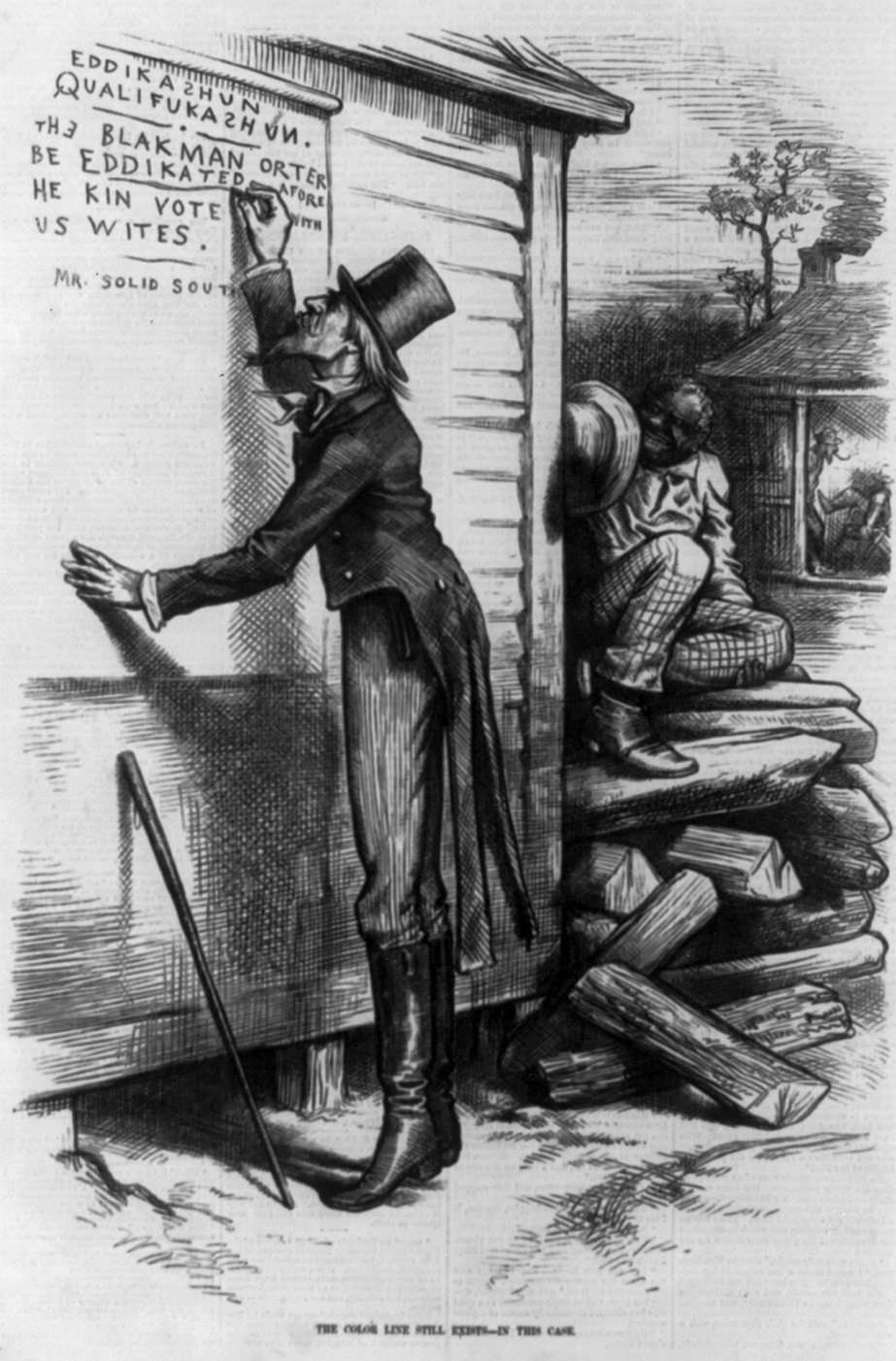Will North Carolina strike illegal voter literacy test from its constitution?

With the rise of white-supremacist power in the late 19th century South came efforts by the region's legislatures to block the African-American vote, and one of the most popular strategies involved so-called "literacy tests" -- qualifying quizzes administered by white elections officials that often involved impossible questions like recite the names of all the judges in a state or give the number of bubbles in a bar of soap.
In 1899, the North Carolina legislature -- then under the control of what was an openly white-supremacist Democratic Party -- ratified a new constitution with a suffrage amendment that instituted literacy tests along with poll taxes and other provisions that effectively disenfranchised most black men. (Women of all races were denied the vote until 1920.)
By the election of 1904, North Carolina had not just suppressed black voter turnout -- it had eliminated it completely. Similar laws in place across the South survived various Supreme Court challenges.
The Voting Rights Act of 1965 finally stamped out literacy tests in practice. However, they remain enshrined in the North Carolina constitution -- and now a bipartisan group of state lawmakers wants to change that.
Earlier this month, two African-American Democrats, Reps. Kelly Alexander of Charlotte and Mickey Michaux of Durham, joined with two white Republicans, Reps. Charles Jeter of Huntersville and Harry Warren of Salisbury, to introduce House Bill 311, which would put before voters an amendment to eliminate Article VI, Section 4 of the state constitution that says, "Every person presenting himself for registration shall be able to read and write any section of the Constitution in the English language."
An earlier effort to repeal the provision failed in 1970 -- the only one of six proposed constitutional changes that North Carolina voters did not approve that year. The clause remains unenforceable under Section 201 of the Voting Rights Act, which prohibits state and local governments from requiring voters to read and write.
The amendment faces very different politics today. Republicans -- once targeted along with blacks by the formerly white-supremacist Democratic Party for their anti-slavery stance -- now control the North Carolina legislature and governor's mansion. And today it is Republicans who stand accused of trying to suppress the minority vote by promoting voter ID laws and other restrictions, so the amendment presents an opportunity to reach out to African Americans.
HB 311 now has 35 co-sponsors from both parties. It passed the first reading last week and was referred to the House Rules Committee. If it wins approval of three-fifths of the state House and Senate, the amendment would go before voters in November 2014.
(Harper's Weekly cartoon, captioned, "The color line still exists -- in this case," via Wikipedia. The writing on the wall says, "Eddikashun qualifukashun. The Black man orter be eddikated afore he kin vote with us Wites, signed Mr. Solid South.")
Tags
Sue Sturgis
Sue is the former editorial director of Facing South and the Institute for Southern Studies.
